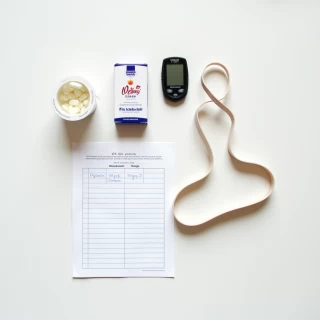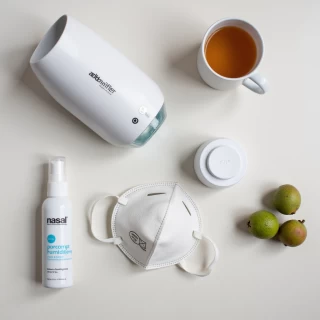
- 1st October 2025
Table of Contents
- Why this question matters now
- What large studies show
- How researchers measure “faster brain ageing”
- Mechanisms linking poor sleep to brain ageing
- Impaired glymphatic clearance
- Chronic neuroinflammation
- Vascular and metabolic injury
- Circadian disruption and gene expression
- Important nuances and limitations
- Practical, evidence-based advice
- Who should be most concerned
- Take-Home messages
Large imaging studies now link chronic poor sleep — not just short sleep but fragmented, irregular or insomnic sleep — to an older “brain age,” more white-matter injury and markers seen before dementia. This article explains the evidence, mechanisms, and practical steps you can take.
Why this question matters now
Sleep problems are very common: insomnia, fragmented sleep, and irregular schedules affect large parts of the adult population. If these patterns speed brain ageing, the public-health impact is substantial because sleep is a modifiable behaviour. Recent studies using magnetic resonance imaging (MRI) and machine-learning “brain age” models report that persistent poor sleep is associated with brains that appear biologically older than the person’s chronological age — in some analyses the difference averages about 2–4 extra years of brain ageing for people with chronic poor sleep. These are population-level signals that matter when combined with other risks such as age, vascular disease and genetics.
What large studies show
- UK Biobank and similar large cohorts report that sleep fragmentation, insomnia symptoms and irregular sleep–wake rhythms correlate with smaller cortical surface areas, altered white-matter microstructure and an older MRI-based brain age.
- Prospective studies show that disturbed sleep in midlife predicts higher amyloid deposition and other Alzheimer-related biomarkers years later, supporting a possible causal role rather than only reverse causation.
- Systematic reviews and meta-analyses confirm associations between poor sleep and markers of accelerated brain ageing, although measures (duration vs quality vs timing) and effect sizes vary across studies.
(Selected imaging and cohort studies published 2022–2025 contributed these findings.)
How researchers measure “faster brain ageing”
- MRI-based brain age models: Machine-learning algorithms predict a person’s “brain age” from structural MRI features. The difference (brain age minus chronological age) indexes accelerated or decelerated brain ageing.
- White-matter integrity (diffusion MRI): Measures such as fractional anisotropy reflect microstructural damage to white-matter tracts; worse values are linked to cognitive decline and are associated with poor sleep.
- Molecular biomarkers: PET imaging or fluid markers (amyloid-β, tau) detect Alzheimer-type pathology; longitudinal data link sleep disruption to later protein accumulation in some cohorts.
- Clinical endpoints: Longitudinal studies tracking cognitive decline, mild cognitive impairment and dementia find that poor sleep patterns correlate with higher incidence in many analyses.
Mechanisms linking poor sleep to brain ageing
No single pathway explains everything. Several interacting mechanisms are plausible and supported by animal and human data:
Impaired glymphatic clearance
Deep (slow-wave) sleep boosts the brain’s interstitial fluid clearance — the glymphatic system — which removes metabolic waste including amyloid-β and tau. Fragmented or insufficient slow-wave sleep reduces this clearance, allowing toxic proteins to accumulate over time.
Chronic neuroinflammation
Poor sleep elevates systemic and central inflammatory markers (cytokines, microglial activation). Persistent inflammation damages neurons and white matter, accelerates vascular injury, and impairs repair mechanisms observed as MRI changes.
Vascular and metabolic injury
Sleep fragmentation and irregular schedules worsen blood pressure regulation, glucose metabolism and endothelial function. Over years, this vascular stress injures small brain vessels, producing white-matter lesions and microinfarcts that contribute to cognitive ageing.
Circadian disruption and gene expression
Irregular sleep timing desynchronises circadian clocks in brain and body, altering gene expression relevant to synaptic homeostasis, cellular repair and metabolic regulation — an emerging explanation for why irregular schedules (not only duration) associate with worse brain outcomes.
Important nuances and limitations
- Not all studies are identical. Some MRI studies find weak or no links between total sleep duration and atrophy, suggesting sleep quality, fragmentation and timing may be more important than raw hours.
- Reverse causation is possible. Early brain pathology can itself disrupt sleep. However, prospective studies reporting that sleep disturbance precedes biomarker accumulation strengthen the argument that poor sleep can be upstream.
- Effect sizes vary. The reported “2–4 years of extra brain ageing” are averages and do not imply everyone with poor sleep will develop dementia — they indicate population shifts that increase long-term risk when combined with other factors.
Practical, evidence-based advice
If you worry about sleep and brain health, this pragmatic plan summarises interventions with the best evidence:
- Prioritise sleep continuity and regularity: Aim for consistent bed and wake times, minimise large variations between weekdays and weekends, and focus on fewer awakenings (less fragmentation) rather than obsessing about total hours.
- Treat insomnia and sleep disorders early: Cognitive behavioural therapy for insomnia (CBT-I) is first-line and durable; it improves continuity more reliably than sleeping pills. Screen for obstructive sleep apnea (snoring, daytime sleepiness) because apnea causes fragmentation and intermittent hypoxia — diagnose and treat it.
- Protect deep slow-wave sleep: Avoid alcohol close to bedtime, limit late heavy meals, reduce evening blue-light exposure (screens), and time exercise earlier in the day to support restorative sleep stages.
- Manage vascular and metabolic risks: Control blood pressure, glucose and lipids; stop smoking and maintain healthy weight — these factors interact with sleep to drive brain injury.
- Circadian hygiene: Get morning daylight exposure, keep regular mealtimes and avoid shift work where possible — circadian alignment benefits brain and cardiovascular outcomes.
- Seek specialist review: If problems persist despite good sleep hygiene, consult a sleep clinician for CBT-I, polysomnography (if apnea suspected) and medication review. Early intervention is preventive.
Who should be most concerned
- Middle-aged adults with chronic insomnia or highly irregular sleep schedules (eg, long-term shift workers).
- People with multiple vascular risk factors (hypertension, diabetes, obesity) where poor sleep compounds existing risk.
- Those with a family history of dementia — improving sleep is a low-risk strategy that may reduce lifetime risk when combined with other healthy behaviours.
Take-Home messages
- Poor sleep quality, fragmentation and irregular timing are associated with MRI signs of accelerated brain ageing and with biomarkers linked to Alzheimer’s disease.
- Multiple biological pathways plausibly connect poor sleep to brain ageing: reduced glymphatic clearance, chronic neuroinflammation, vascular injury and circadian disruption.
- Evidence-based steps — CBT-I for insomnia, diagnosis and treatment of sleep apnea, sleep regularity, circadian hygiene, and control of vascular/metabolic risks — are the most practical strategies to protect brain health.














